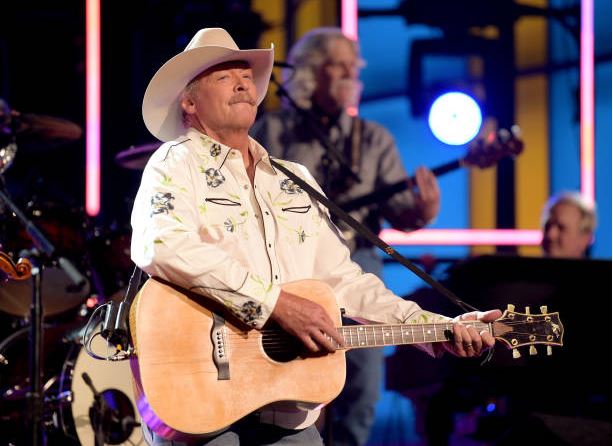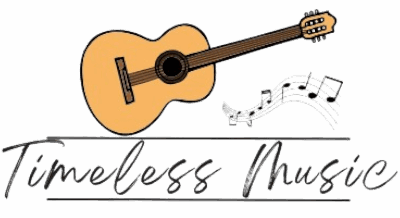
In the heart of Los Angeles, a moment of tension turned into an unforgettable night of unity, when country music legend Alan Jackson transformed protest into harmony with nothing more than the power of his voice. What began as a potential disruption at his sold-out concert at the Staples Center ended up becoming one of the most powerful demonstrations of how music can unite people beyond differences.
On that night, with 25,000 fans filling the arena, a small group of protesters tried to disrupt the performance by chanting anti-American slogans. Instead of confrontation, Alan Jackson chose a response that silenced the noise and captured the spirit of the evening—he sang. With humility and quiet strength, Jackson began performing “God Bless America.”
Within seconds, the crowd followed his lead. Thousands rose to their feet, their voices swelling with his. The protestors’ chants were drowned out by the thunderous chorus of fans who joined in unison. What could have been remembered as a conflict became instead a defining moment of solidarity, patriotism, and hope.
A Night Charged with Emotion
The concert had been building momentum long before that pivotal moment. Jackson, known for timeless hits like “Chattahoochee,” “Remember When,” and “Where Were You (When the World Stopped Turning),” brought his signature honesty and warmth to the stage. Fans of all ages, backgrounds, and beliefs had come together for an evening of country music and storytelling.
But when the chants erupted, the atmosphere shifted. For a split second, the air was filled with tension. Many artists might have stopped the show or reacted in anger. Jackson, however, responded in the way he knows best: through song.
It wasn’t just the words of “God Bless America” that carried weight—it was the sincerity behind them. His calm voice, paired with the emotional power of the lyrics, turned the focus back to the music and away from division.
Music as a Unifying Force
Cultural commentators quickly noted that the moment wasn’t just about a single protest or even one concert—it was a reminder of the unique role music plays in society.
Dr. Emily Reynolds, a music historian, observed:
“What Jackson did wasn’t merely sing a patriotic song. He used music as a bridge between conflict and community. It’s a testament to the power of art when wielded with authenticity and humility.”
Indeed, Jackson’s response reminded many of the deep roots of country music. Built on stories of hardship, resilience, faith, and family, country music has always been about connection. In Los Angeles that night, those themes came alive in real time.
The Crowd’s Roaring Response
For the audience, the moment was electric. Witnesses described the energy as overwhelming, with some fans wiping away tears as they sang along. Others waved American flags that they had brought into the arena.
Jennifer Martinez, a long-time fan, shared on social media:
“I’ve been to dozens of concerts, but I’ve never felt anything like this. It wasn’t just about Alan Jackson—it was about all of us coming together. For once, the world felt united.”
Her post quickly went viral, joined by hashtags like #AlanUnites and #GodBlessAmerica that began trending across social platforms within hours. Clips of the moment circulated online, drawing millions of views and sparking conversations far beyond the arena walls.
A Message Beyond Entertainment

What made this night stand out wasn’t simply the music—it was the message. In an age when public events are often disrupted by division, Jackson showed that leadership can sometimes mean responding with grace instead of force.
His choice to sing instead of argue transformed the narrative. Rather than allowing headlines to focus on conflict, the world instead saw a story of togetherness. Fans, critics, and even skeptics acknowledged the significance of what had happened.
One commentator wrote:
“Alan Jackson didn’t just perform; he reminded us that unity doesn’t come from silencing others, but from singing louder, together.”
Why Alan Jackson Stands Apart
This moment also underscored why Alan Jackson continues to hold a special place in the hearts of millions. Unlike artists who chase trends or controversy, Jackson has built his career on authenticity and humility.
He has never been about flashy gimmicks or empty spectacle. His songs—whether about small-town life, love, loss, or faith—speak to everyday people. And in Los Angeles, he showed that this authenticity isn’t just in his lyrics; it’s in the way he carries himself on stage and in life.
For decades, Jackson has been called the “gentle giant” of country music—a man whose strength lies in his sincerity. That night proved it once again.
The Aftermath: A Lasting Impact
In the days that followed, media outlets replayed the footage of Jackson’s impromptu performance. Radio stations discussed it, news programs highlighted it, and fans shared their own stories of how the moment had moved them.
It wasn’t only country fans who paid attention. Commentators from across cultural and political spectrums acknowledged the deeper meaning: the idea that sometimes, in the face of division, the most powerful response is to remind people of what they share in common.
The Los Angeles concert has since been described as a “gathering of resilience and hope.” For many, it became more than just another stop on a tour. It was a symbol—one that will be remembered as a shining example of unity in challenging times.
Conclusion: A Night That Became History
When Alan Jackson took the stage that night, fans expected great music. What they didn’t expect was to witness a moment that would resonate across the nation. By choosing harmony over conflict, Jackson reminded us all of the healing power of music.
The Staples Center show will forever be remembered not for the disruption, but for the way 25,000 voices rose together as one.
Alan Jackson has long been known for telling the stories of ordinary people. On that night in Los Angeles, he lived out the very message his songs have always carried: that no matter the challenges, unity and hope are always possible when people come together.
